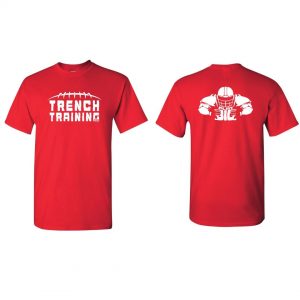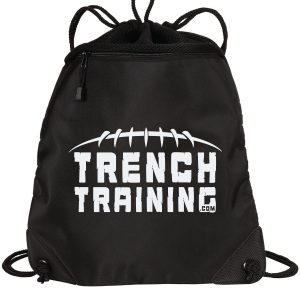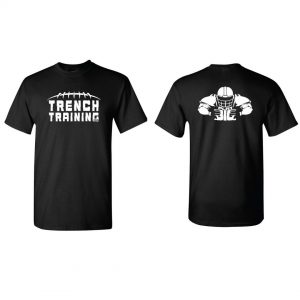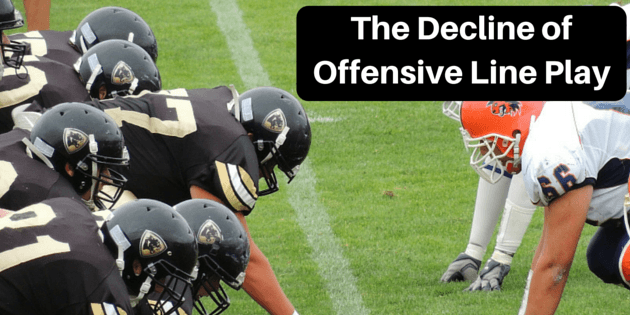
by Steve Stark | Apr 20, 2016 | Blog, coaching kids
Last week I had a chance to go to the Wisconsin Football Coaches Clinic and talk to coaches about offensive line play.
It’s always great to network and talk football with other coaches.
Coach Glenn and I had a chance to speak to quite a few college coaches and we heard many voicing the same concern.
Many college coaches feel there is a lack of fundamentally skilled offensive linemen coming out of high school.
We are hearing more and more about NFL coaches saying the same thing about college offensive linemen.
So why are we seeing a decline in offensive line play and what can we do to improve offensive line play?
Why The Decrease In Quality Offensive Line Play?
Emphasis on Scheme
High school and college football has changed dramatically over the past decade.
The emphasis for coaches has shifted heavily to teaching a scheme or a system.
While the scheme an offense uses and how well they teach it is important, fundamentals cannot be sacrificed for scheme.
Pressure to win, and win now, has a big impact on a programs.
Let’s be honest…
Parents, administrators and communities expect to win.
If a coach doesn’t win they are out.
That is true at EVERY level. Even youth football.
One of the things coaches are doing in an attempt to win is focusing on a scheme.
A well coached scheme can help you win football games.
The fact is, scheme is easier to teach than fundamentals.
How many times have you heard, ‘We just don’t have the kids to do that scheme”?
I have heard it many, many times.
The fact is, you can make any scheme work if you coach it well enough.
Wing T, spread, zone, wishbone, flex bone, pistol, double wing, single wing, chicken wing…
It doesn’t matter.
Coached well enough any scheme can work. (The chicken wing might be tough.)
The problem is that a lot of schemes today don’t put emphasis on great blocking up front.
Take the spread zone-read offense for example.
It’s predicated on spreading the defense out, forcing the defense to make decisions and getting rid of the ball quickly.
This is a great offensive scheme!
However, coaches have to spend more time on QBs, running backs and receivers because the scheme is so complex.
What we see is that the programs that spend time to have great technique in the line as well as a strong scheme, win championships.
Schemes are important and some are quite ingenious and effective.
The point is that coaches don’t spend as much time on fundamental line play, thinking that scheme is what will make their program successful.
I know this is a generalization and there are a bunch of coaches that are teaching great fundamental line play.
So don’t get bent out of shape if that ‘s you.
Others out there, and there are quite a few, are not spending the time on their offensive lines.
That leads me to the next reason for the decline in offensive line play…
Lack of Quality O-Line Coaches
In many programs there just isn’t anyone with good offensive line coaching experience.
It’s very rare at the youth level but many times at the high school level too, to find good o-line guys.
The problem is growing as we are seeing scheme trump fundamentals.
Coaches who come out of programs that didn’t teach fundamentals well are not going to be able to teach it either.
The pickings become more and more slim every year.
This may seem unfair but I believe, very strongly, that it’s true.
Anyone who coaches is an exceptional person in my mind.
I never want to take away from the time and effort that all coaches put in.
It doesn’t change the fact that we are woefully short on o-line coaches with quality experience and training.
The crazy thing is that an offensive line constitutes 45% of the players on that side of the ball.
Add a tight end who has to block and it goes up to 55%.
You’d think we would spend more time and effort on it, huh?
What Can We Do To Improve Offensive Line Play?
Put More Emphasis on Fundamentals
Again, I know that scheme is important.
Consider how good your team could be if you taught great fundament line play with your awesome scheme.
Fundamentals need to start in the youth programs.
The reason many coaches say, “we don’t have the kids to run that offense” is because those big kids quit before they get to high school.
The coaches put the emphasis of the programs on the “skill” positions and the scheme.
We need to change the way we treat the big kids in our youth programs.
Educate Line Coaches
There is a lot more to fundamental line play than telling a kid, “Block!”
Footwork, body control, pad level, hand placement and punch are just a few of the critical aspects to teach a lineman.
There are coaches that say, “All of those things are overkill for youth players. They can’t handle it.”
Yet those same coaches teach the subtle nuances of playing quarterback, running back, receiver, linebacker and defensive back.
I’m not sure it can be emphasized enough… HALF of your offense are linemen.
Make sure that those who coach your linemen are getting training and education on the fundamentals.
Too many times the line is coached by the parent who had to coerced to help out with his son’s team.
He knows nothing about line play and doesn’t even know where to get information.
There is high school near me who had their varsity offensive line coach give up his position just prior to the season.
They didn’t even replace him.
The kids basically had to coach themselves.
Is that crazy?
Half of your offensive doesn’t have a coach?
I’m a firm believer that a good coach can coach anything if they are given the right information and training.
There is no excuse to have a youth or high school program that doesn’t put a focus on line play.
The “skill” of the guys up front will always win out over scheme.
Linemen need to be thought of as “skilled” players because it takes skill to be a good lineman.
Positive Coaching
We need to keep more kids in our youth football programs.
Especially the big kids.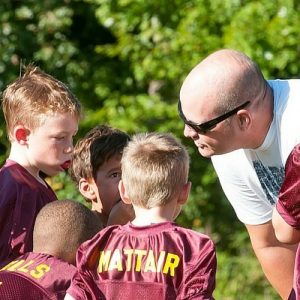
The only way to do this is to make their experience as positive as we can.
Coaches need to build players up.
They need to reinforce what their players are doing well and they need to teach the areas where they are struggling.
Yelling at a player about what they are doing wrong is not making the player better.
Here’s a good rule for any coach…
“Be loud when you praise. Be quiet when you correct and teach.”
Your tone when you coach means everything to players.
Without good line coaching, we have big kids who aren’t getting a lot of attention in practice.
Then these kids make mistakes and get yelled at in games.
Do you think these kids want to keep playing?
I wouldn’t.
Neither would you.
Positive coaching is important for all kids in all youth sports.
This change can have the biggest impact on the success of a program.
We need positive coaches who are positive role models making a positive impact on kids.
I hope your found some value learning how to improve offensive line play.
If you did please like, comment and share.
Also, if you have questions about training your athlete or your coaches please contact us at steve@trenchtraining.com or glenn@trenchtraining.com.
Let’s Play,

Coach Steve
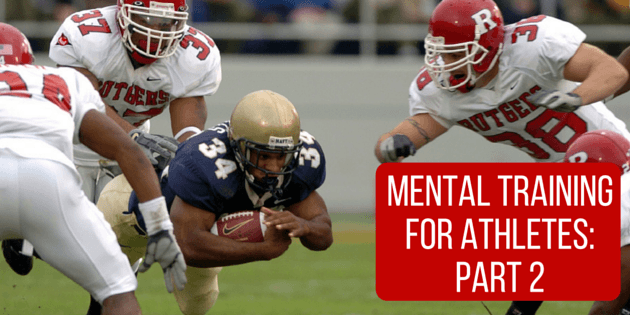
by Steve Stark | Apr 9, 2016 | Blog, training
The second part of Mental training is all about performance.
The information I am focusing on in this article is based on research by Dr. Jack Lesyk’s and his article on Sportpsych.org.
Dr. Jack Lesyk, Ph.D. Uses a performance chart that makes a lot of sense to me in how you become a high performing athlete.
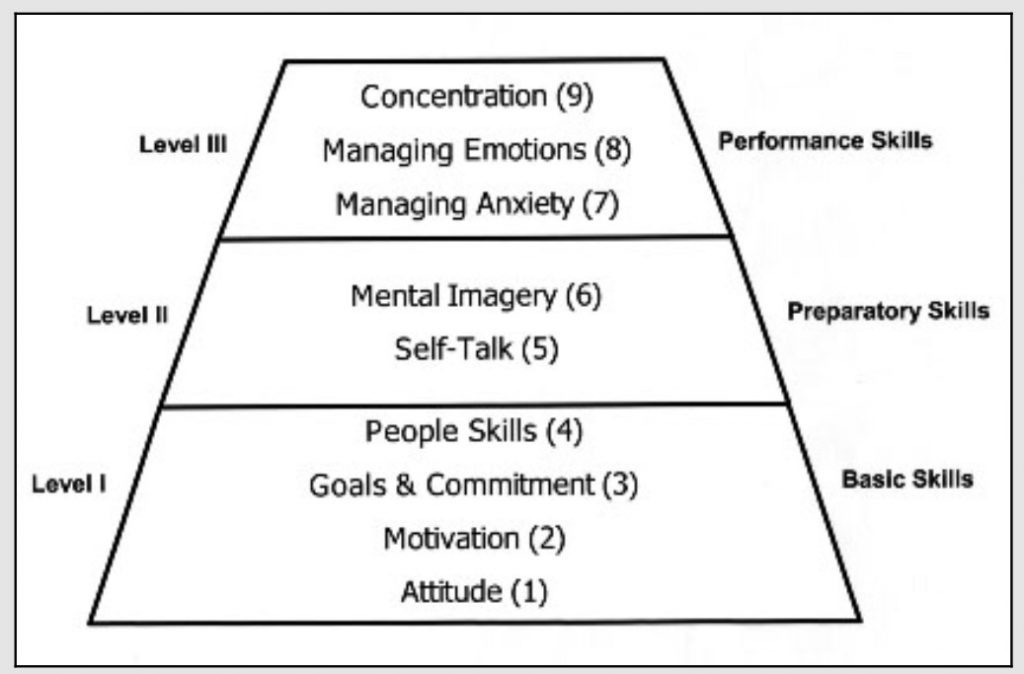
His pyramid describes the levels that an athlete must move through to become a high functioning athlete.
I agree that there are short and long term phases in athletics.
Many of the athletes struggle with their talent because their emotions are not able to handle the competition.
It has nothing to do with their skill or talent but all to do with handling their emotions. This is level 3.
Mental Training for Athletes: The Performance Pyramid
Although each of the nine skills is important, its primary importance will occur during one of three phases: long-term development, immediate preparation for performance, and during performance itself.
Level I
These mental skills constitute a broad base for attaining long-term goals, learning, and sustaining daily practice.
They are needed on a day-by-day basis for long periods of time, often months and years.
Level II
These skills are used immediately before performance to prepare for performance.
They maybe used just before competition begins, or immediately before a specific performance action, such as a golf shot or a free throw in basketball.
Level III
These skills are used during actual performance behavior.
Spending time on These 9 Mental skills will help you attain the level III in athletics.
Detailed Descriptions of the Nine Mental Skills
1. Attitude
Successful athletes:
- Realize that attitude is a choice.
- Choose an attitude that is predominately positive.
- View their sport as an opportunity to compete against themselves and learn from their successes and failures.
- Pursue excellence, not perfection, and realize that they, as well as their coaches, teammates, officials, and others are not perfect.
- Maintain balance and perspective between their sport and the rest of their lives.
- Respect their sport, other participants, coaches, officials, and themselves.
Choice is the key word . Many athletes don’t realize that they can choose how they think. This is something that everyone can do! Viewing life as an opportunity as opposed to a right. We are not owed anything. When we realize this it makes a huge difference in our level of anxiety and stress. The less stressed and anxious we are the better we perform! Respecting the game, the coaches, other players, and yes, the parents that haul you around and buy your gear, is so important in helping you move towards your goals of being great!!
2. Motivation
Successful athletes:
- Are aware of the rewards and benefits that they expect to experience through their sports participation.
- Are able to persist through difficult tasks and difficult times, even when these rewards and benefits are not immediately forthcoming.
- Realize that many of the benefits come from their participation, not the outcome.
Consequences and rewards are a great motivational tool to use on yourself. Coaches and parents will use their own methods of rewards and consequences but it is important for you to come up with your own appropriate consequences and rewards system.
3. Goals and Commitment
Successful athletes:
- Set long-term and short-term goals that are realistic, measurable, and time-oriented.
- Are aware of their current performance levels and are able to develop specific, detailed plans for attaining their goals.
- Are highly committed to their goals and to carrying out the daily demands of their training programs.
I talked in depth about this in the previous article. Goals are very important and paying attention to progress is a big part of this.
4. People Skills
Successful athletes:
- Realize that they are part of a larger system that includes their families, friends, teammates, coaches, and others.
- When appropriate, communicate their thoughts, feelings, and needs to these people and listen to them as well.
- Have learned effective skills for dealing with conflict, difficult opponents, and other people when they are negative or oppositional.
Sometimes athletes are not real social. This does not mean that they do not have people skills. They may have very good skills but choose to use them sparingly. There is nothing wrong with this type of athlete and I have seen many who go on to play at a high level. The key is for them to understand what is going on around them. They can’t allow others to affect their emotions. Learning to deal with conflict, loss and adversity is key to helping an athlete perform at his or her best.
5. Self-Talk
Successful athletes:
- Maintain their self-confidence during difficult times with realistic, positive self-talk.
- Talk to themselves the way they would talk to their own best friend
- Use self-talk to regulate thoughts, feelings and behaviors during competition.
Another skill that I mentioned in previous article that I feel is very important as well.
6. Mental Imagery
Successful athletes:
- Prepare themselves for competition by imagining themselves performing well in competition.
- Create and use mental images that are detailed, specific, and realistic.
- Use imagery during competition to prepare for action and recover from errors and poor performances.
7. Dealing Effectively with Anxiety
Successful athletes:
- Accept anxiety as part of sport.
- Realize that some degree of anxiety can help them perform well.
- Know how to reduce anxiety when it becomes too strong, without losing their intensity.
I think this is one of the most important skills and it is overlooked by many coaches, parents and athletes. Fear is another name for anxiety. Fear can cripple an athlete. It can keep an athlete from being able to perform or even function. This skill is VERY Important to look at because there is so much to learn about what and where fear comes from. Fear also is something that you can choose to overcome by working on it. I would suggest, to any young athlete, that they spend a lot of time learning what fear really is and how to overcome it.
8. Dealing Effectively with Emotions
Successful athletes:
- Accept strong emotions such as excitement, anger, and disappointment as part of the sport experience.
- Are able to use these emotions to improve, rather than interfere with high level performance
This is often a misunderstood skill and also one that does not typically get talked about by coaches and athletes. I believe emotions are not talked about because many athletes have fear that it will make them look weak. The truth is that this skill will make them strong beyond their understanding.
9. Concentration
Successful athletes:
- Know what they must pay attention to during each game or sport situation.
- Have learned how to maintain focus and resist distractions, whether they come from the environment or from within themselves.
- Are able to regain their focus when concentration is lost during competition.
- Have learned how to play in the “here-and-now”, without regard to either past or anticipated future events.
Please feel free to message us if you have questions or require more information about any of our post topics.
We want to help you and your athlete become better at both the physical and mental aspects of sport.
At Trench Training we also have sports life coaches available for you to work with if you are looking for some extra help.
Play Big!

Coach Glenn

by Steve Stark | Feb 26, 2016 | Blog
Balancing sports and academics and your social life requires a plan and help from mentors.
I would love to tell you when I was a competing athlete that I was well balanced.
That was not the case and the mentors in my life tried to help me but I refused to take that help.
If there is one thing that I would like a re-do in life it would have been to listen about balancing sports and academics and my social life.
Today in my life, I see the importance of balance.
Coaches can and should help your athlete to learn some balance.
Preparation is the key to success. If you wait until last minute you will NOT perform to your potential.
Balance requires a plan. Each year, month, week and day needs a thought out plan.
Most people have several priorities but I’m guessing your young athlete’s goes something like this: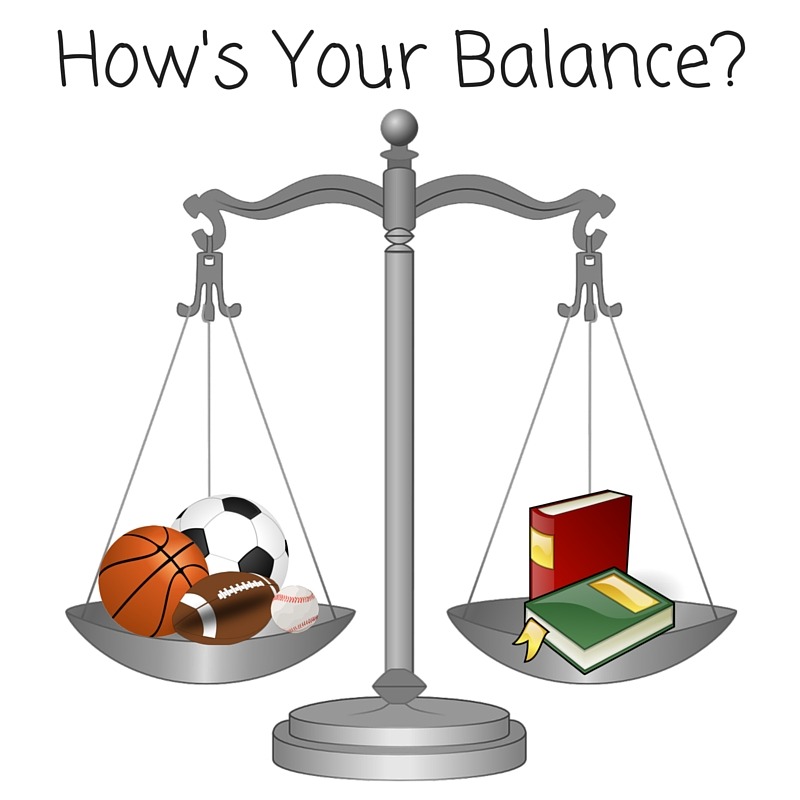
1. Sports
2. Social
3. School
4. Family
5. Spiritual
6. The Rest
If your priorities are like the above or something different that is fine.
This is a starting point.
That one was mine and now it looks much different:
1. Spiritual
2. Me
3. Career
4. Family
5. Social
6. Th Rest
Each one of these priorities should have a % placed on them.
Then when sitting down each week you can assign appropriate times.
For instance, in the off-season you will work just as hard but not so many hours as wen you are in-season.
Finals or test times you will need to change percentage much higher for academics.
I know it’s “cliche” but having an assignment notebook, reminder log on your phone and/or any number of tools that are available will greatly help you.
I watched athletes such as Don Davey and Joel Hilgenberg who were not only popular, successful athletes but also successful in life.
In Don Davey’s case, he was a very high GPA student in engineering.
They had their priorities as such and were able to do things many of us don’t because of being out of balance.
In my case because my balance sheet was out of order I tended to put too much % in social which affected all the other priorities.
Proper balance with your time will allow your athlete to be successful in all areas of their lives.
It does however require discipline and the ability to say no to some things.
I have yet to meet someone in all the years I’ve been around who ever regretted being in balance and being able to say no to things that did not build them to be better people.
But I have met thousands who have regrets because they did not listen, learn and build a balanced priority list.
It’s your athlete’s choice, which one will you help them choose?
Work Hard, Play Big!

Coach Glenn
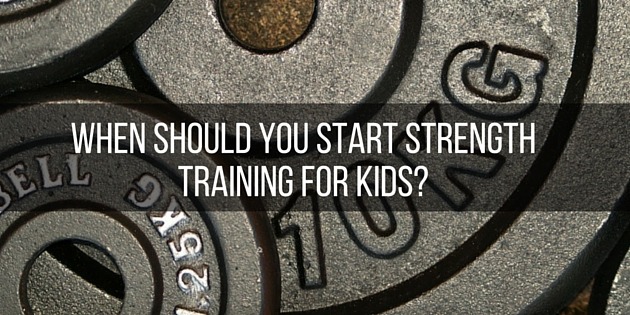
by Steve Stark | Feb 23, 2016 | Blog
Strength training for kids has always been a controversial topic.
We all want what is best for our kids.
Unfortunately, when it comes to athletics, we don’t always know what’s best.
We want our kids to become the best that they can be.
The question we want to have answered is how young should they begin strength training.
The answer is you can begin strength training for kids at any age…
…with a few very important guidelines to consider.
Strength Training for Kids 5 Guidelines
1. Proper movement must be taught first.
The first thing young athletes who are starting strength training need to learn is how to control their body.
Athletes need to know how to perform basic movements like stopping, landing, cutting, jumping and falling.
That’s right, there’s even a correct way to fall.
They need to know how to manipulate their body before we ever think about putting them under a bar and loading them with weight.
Can they perform a proper bodyweight squat and lunge?
Can they perform 10 quality push ups?
A good trainer will put an athlete through a functional movement assessment prior to starting any program.
This assessment will identify any deficiencies so those can be addressed with the strength training program.
2. Avoid specialization.
Specialization is all the rage these days.
More and more kids are playing one sport year-round.
Fewer and fewer kids are playing multiple sports.
This is very detrimental to the development of young athletes.
The variation in training and competing in multiple sports has incredible advantages for an athlete’s overall ability.
Participating in multiple sports helps build muscles in ways that one sport cannot.
This translates into better, stronger athletes who are less prone to injury.
Specialization has been shown to lead to higher instances of overuse injuries.
Kids, especially pre-teens, can reap great genefits from being involved in multiple sports.
3. Encourage “free play”.
“Back when I was a kid…” (Wow, I used to make fun of my dad for saying that)
We used to have a lot more time for pick-up sports.
I logged hundreds of hours playing basketball, football, baseball, wiffleball, tag, and dozens of crazy active games that we just made up.
We didn’t have year-round structured sports.
Whatever sport we were in had a couple practices per week, maybe.
Otherwise, we were involved in some neighborhood game every day.
This is where athletes were made.
Our yards or driveways were where we learned skills.
We didn’t think about strength training for kids.
We trained on the playgrounds.
That just doesn’t happen much anymore.
Video games, movies, and mobile devices have taken the place of active, free play.
We as a family have strictly limited the amount of time our kids are allowed to spend in front of electronics.
We want our kids to be active.
It doesn’t matter what they do.
Riding a bike, building a snowman, playing frisbee or aything with a ball is going to allow kids to work on improving their movement.
These are the things that create well-rounded athletes.
4. Proper nutrition is essential.
What do we expect our kids to become if we stuff them with fast food.
Drive-thrus are not meant for food just banks.
We are a product of what we put into our bodies.
With busy schedules it can be difficult to eat well.
Be sure your athlete understands the importance of nutrition.
Without the proper fuel those strength training sessions will not be as productive.
5. Be an example.
Your kids not only get their genetics from you but also your habits.
If you aren’t setting a good example with an active lifestyle and proper nutrition, you are not helping your athlete succeed.
This doesn’t mean you have to be working out 4 hours a day and eating bird food.
However, if you don’t want your kids eating junk then they can’t see you eating it.
If you want your kids to be active, then you need to put forth the effort to be active with them.
The saying “Do as I say not as I do.” isn’t gong to work.
If you want to do everything you can to help your child reach their potential then you need to do the same.
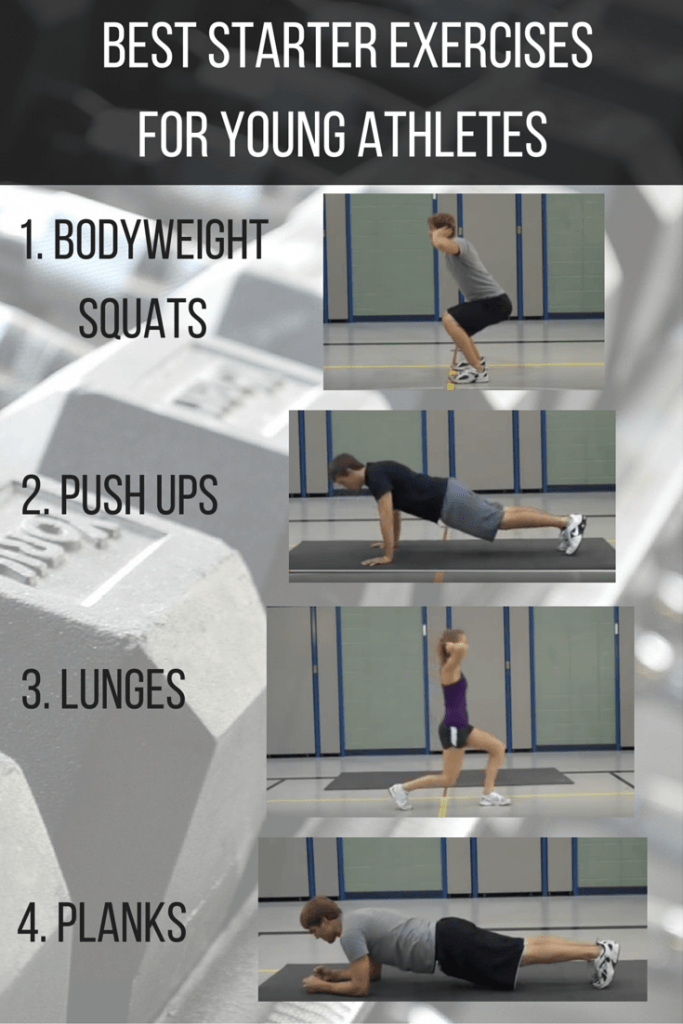
Questions to Consider When Looking for a Trainer
1. What is their fitness and training philosophy?
Some specific questions you might ask would be:
What do they feel is important in a training program for children? Proper form and movements should be at the top of their priorities.
Can they provide guidelines for nutrition? Not all trainers have a background in nutrition but most good ones are knowledgable in this area.
What types of equipment will my child need or be using? If they send them to the weight machines… run in the other direction.
2. Do they perform a functional movement assessment?
Proper movement and form are essential building blocks to effective training.
Your athlete’s trainer needs to be aware of any weaknesses your athlete has and should address those in their program.
3. Do they have references?
The best way to find about a trainer is to talk to people they have trained.
Be sure to get references and speak to some parents of the kids the trainer has worked with.
Find someone who has experience with strength training for kids.
4. Have they worked with children before?
We all know working with kids takes patience. (Some adults require a lot of patience too.)
Be sure that you and your child are comfortable working with their trainer.
Use those references to find out the trainer’s temperament.
Most kids don’t react well to yelling and screaming.
This method of coaching and training just doesn’t work so avoid those trainers like the plague.
Your athlete’s training program should be fun as well as functional.
Strength training for kids, above all else, should be fun.
If you found value with this post please like, comment and share.
Let’s Play,

Coach Steve
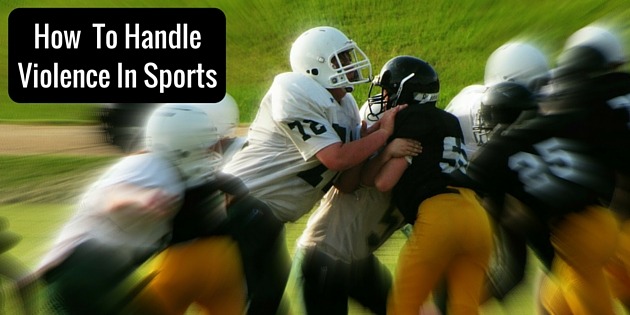
by Steve Stark | Feb 15, 2016 | Blog
We are seeing violence in sports all the time.
The nature of competition causes us to generate very strong emotions around our games.
Dealing with these emotions can be difficult for adults and especially for kids.
So many of us watched the Badger game this past weekend. During the game there was an instance of a player pushing another players head into the basketball court out of frustration (I am giving him benefit of the doubt).
Why do players at times lose control of their emotions and go to violence that is unnecessary? We have heard of players punching their wives, hitting girlfriends, shooting others etc. etc.
Violence is a part of life and there is no way to stop and end all violence, however, we can learn to control the use of violence if we are willing to. Any time we get angry we have adrenaline that can cause us to do more than we normally do when we are at rest or are calm.
One of the methods that is used to help athletes control their emotions is to teach them to “flip a switch”. This is used so that players are able to get their emotions and mentality jacked up before and during a game and then once the game or practice is over they then “flip the switch” back to realizing that they have been practicing, learning, using violence since they were young to become successful.
Athletes need to understand that drinking alcohol or taking other forms of mood altering drugs can blur the switch and cause them to use this violence in an inappropriate manner. There are 5 techniques that can be used to help athletes flip the switch to off after an emotional game.
5 Techniques to Deal with Violence in Sports
1. Work with a Mentor, Coach, Psychologist who is trained in working with emotions.
This person will be able to use real life scenarios and help you actually practice flipping the switch so that you can keep yourself from entering into situations that you can never take back once it happens.
2. Keep yourself in balance mentally and physically.
The more in balance we are the less likely emotions will take over our minds and body.
3. Refrain from using alcohol or drugs.
This is really important during your sports career as many people are going to purposely try to set you off. If you are under the influence this makes it much more difficult to walk away or stay out of this type of confrontations.
4. Learn how to communicate so that anger is not the main ingredient in your relationships.
We need to find and keep trusting, self building relationships that help us to become better people not ones that take us out of our best.
5. Be willing to discuss these techniques with the people around you.
Let those who support you know when you are struggling with these emotions. Find a friend that you can really trust. Or look for a mentor that will have your best interest at heart. This can be difficult especially if you are a top athlete as many people are trying to use you or want to know you just because of your status. It is important to really find some good people that are interested in you as a person not as an athlete or star.
Why is this so important? Life is very similar in many ways to sports.
The more we can use sports to learn about life the better people we will become.
If we can learn to handle and use our emotions in a positive way we will become better bosses, employees, husbands, wives, fathers and mothers.
This is what trench training is all about. Building young athletes into better adults.
Work Hard, Play Big!

Coach Glenn

by Steve Stark | Feb 7, 2016 | Blog, coaching kids
Is a parent coaching from the bleachers helping their child’s performance?
The answer is no and in many cases parents who yell instructions from the sidelines actually have a negative impact on their athletes performance.
Parents always want to see their children succeed.
That’s the reason we are so passionate about watching our kids play sports.
However, what we say from the bleachers can have a huge effect on our children’s performance.
And not in a good way.
Parent Coaching and Instinctual Thinking
A few years back I had an opportunity to listen to sports psychologist, Dr.Alan Greenberg speak to a group of youth parents.
He explained something that I knew about parent coaching but had never quite put together until his presentation.
Athletes spend hundreds if not thousands of hours practicing the skills required for their sport.
The reason athletes spend so much time practicing is obviously to get better, right?
They also put in all this time to have those skills become instinctual.
What Dr. Greenberg explained is that we want athletes primarily using the part of the brain that supports these instinctual skills.
The muscle memory and instinctual play is controlled by one part of the brain while instructions are processed by another.
You can only use one of these areas at a time.
The mind can process things in a way that doesn’t require the athlete to “think’ about their actions.
Now, I know what you’re going to say, “Athletes have to think while they play”.
Of course they do… but it’s how they are thinking that makes all the difference.
Have you ever seen a player ‘in the zone”? Hitting every shot or making every play?
Do you think they are listening to instructions during this time? Is that the reason they are on fire?
The zone they are in is in the instinctual part of their brain.
If athletes are constantly bombarded with parent coaching, this takes away from the athlete’s ability to think instinctually.
Parents yelling instructions from the bleachers only confuse the athlete.
Even with the most caring intentions these instructrions are ultimately detrimental to your athlete’s performance.
So what should you be yelling from the bleachers?
Parents Coaching vs. Parents Cheering
Athletes need to know that their parents love and support them regardless of how they play.
They have to feel like their parents will be there for them in a way that has NOTHING to do with performance.
Kids who KNOW that their parents are in their corner without judgement perform better. Period!
I heard a youth coach once say “parents cheer and coaches coach”.
This is great motto to keep in mind at your child’s sporting events.
Here’s a tip that might help you stay away from parent coaching.
When you are at a sporting event for your child never yell any phrase that contains a verb.
Keep from saying things like, “Play defense!”, “Shoot the ball!” or “Run faster!”
Instead use phrases like, “”Great play!”, “Awesome shot!” and “Nice pass!”
It may seem silly but you need to stick to positive cheering instead of instructional coaching from the stands.
This will allow your child to play without over-thinking and they will know that you are there to be their biggest fan and not their second coach.
If you found value with this post please like, comment and share.
Let’s Play,

Coach Steve

